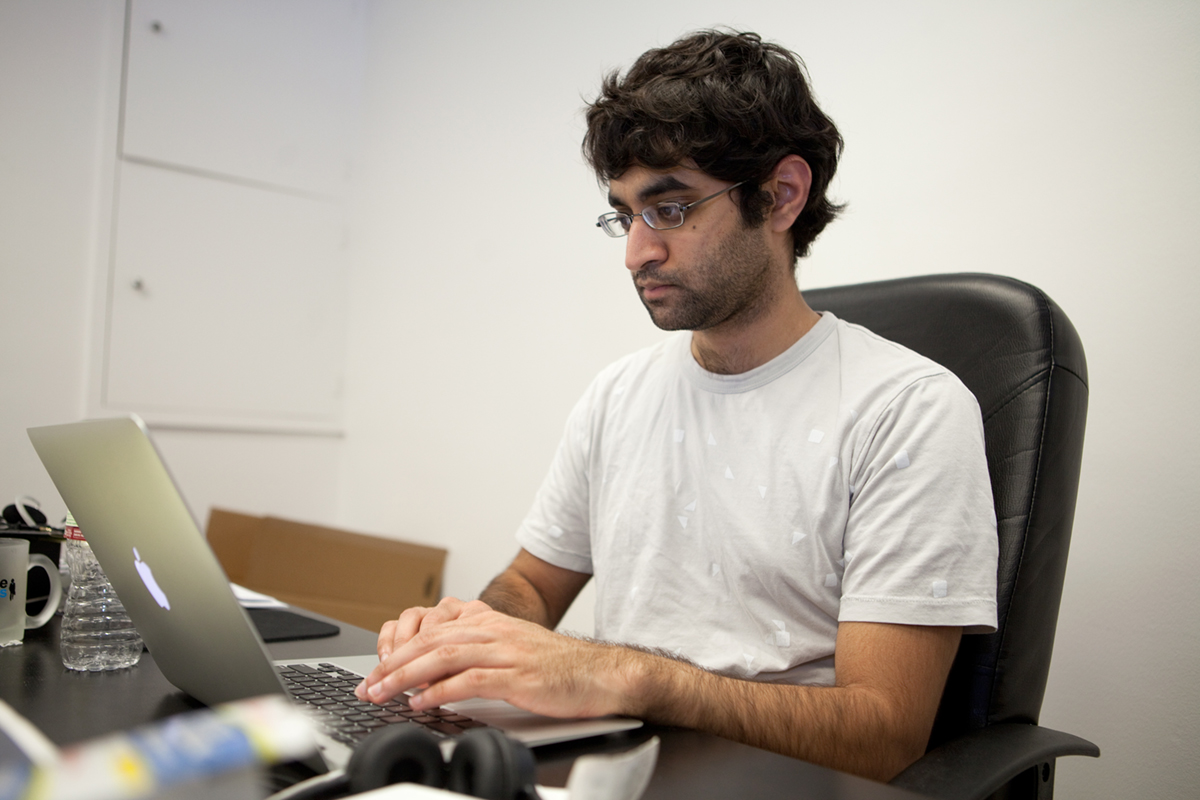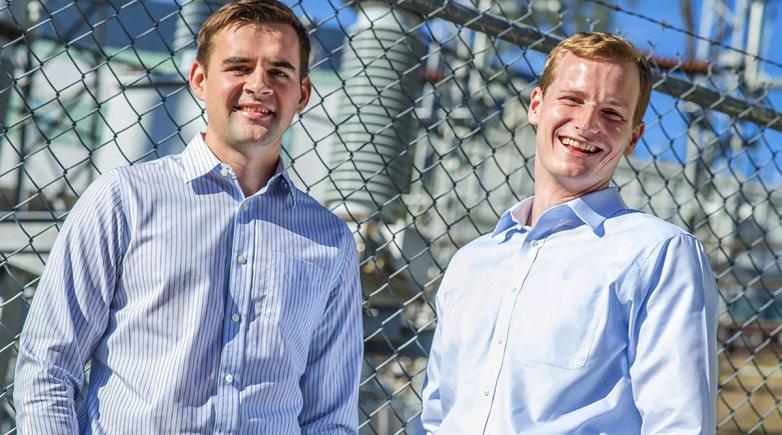Kush Patel ’05

A new kind of school
Kush Patel ’05 was destined to become an entrepreneur. His earliest role model was his father, an electrical engineer who founded a California-based hardware networking startup and subsequently sold it to a New Hampshire company. Later, as an analyst in Mumbai for an India-focused hedge fund, Patel met many entrepreneurs, discussing and closely studying their businesses. When it was time for his next career challenge, ”I knew I wanted to start my own company,” he says. In 2012, he did.
Patel is CEO of App Academy, an immersive web development and job placement program with locations in San Francisco and New York City. The business model came from Patel’s personal experience taking a software development course. ”I thought the immersive coding school model was fantastic but I wanted to make several significant changes,” he says. He and co-founder Ned Ruggeri, a Google engineer and former classmate from the University of Chicago, established App Academy using tuition as an incentive for prospective students: There are no upfront costs to take the course. An App Academy graduate pays a placement fee only if he or she finds a web development job after the program ends. The fee is 18 percent of the student’s first-year salary, payable over six months after employment begins. ”Our students know they want to pursue coding as a career,” Patel says. ”They’re essentially putting their lives on hold while taking this course. It’s a commitment and they’re not earning any money while they’re doing it. Our tuition model is both an attempt to share the risk burden as well as to better align incentives.”
App Academy’s full-time, 12-week classes are targeted to recent college graduates and career changers. The application process, which includes a coding challenge, is competitive: Of 25,000 applicants annually, only 2 percent are accepted. Prior programming experience isn’t required, and most of the students don’t have computer science degrees or coding backgrounds. The course graduates approximately 500 students annually.
Coding ”boot camps” like App Academy help to meet a growing need for web developers. Based on 2012 U.S. Bureau of Labor Statistics data, 150,000 programming jobs are available annually. Building upon relationships with tech employers such as Google and Uber, Patel and his team have placed 98 percent of App Academy graduates. Students are making an average annual salary of $105,000 (in San Francisco) or $89,000 (in New York City). That’s outpacing salaries of undergraduates with computer science degrees from top schools, according to Patel. ”Google has actually condensed its interview process for programming jobs from a few months to a few weeks for our graduates because they know they’re getting qualified candidates from App Academy,” he says.
Patel credits Exeter with helping him develop critical problem-solving skills and a dedicated work ethic, both key for successful entrepreneurs. ”I worked the hardest I ever have when I was at Exeter,” he says. ”It gave me the perspective and tools to problem-solve early in my career at the hedge fund and today at App Academy. I know I can push myself and accomplish a lot from working hard.” For now, Patel works to refine the App Academy brand. He and Ruggeri aren’t currently interested in expanding to new locations; they’re focused on high-quality training and continuing to be a resource for cutting-edge application development.
”We’re competing with master’s degree programs in computer science,” Patel says. ”We want to continue to be the school of choice for coding education.”
— Debbie Kane


